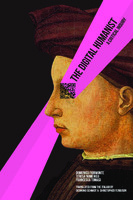The Digital Humanist: A Critical Inquiry
Author(s)
Fiormonte, Domenico
Numerico, Teresa
Tomasi, Francesca
Contributor(s)
Schmidt, Desmond (editor)
Ferguson, Christopher (editor)
Rockwell, Geoffrey (editor)
Collection
ScholarLedLanguage
EnglishAbstract
This book offers a critical introduction to the core technologies underlying the Internet from a humanistic perspective. It provides a cultural critique of computing technologies, by exploring the history of computing and examining issues related to writing, representing, archiving and searching. The book raises awareness of, and calls for, the digital humanities to address the challenges posed by the linguistic and cultural divides in computing, the clash between communication and control, and the biases inherent in networked technologies. A common problem with publications in the Digital Humanities is the dominance of the Anglo-American perspective. While seeking to take a broader view, the book attempts to show how cultural bias can become an obstacle to innovation both in the methodology and practice of the Digital Humanities. Its central point is that no technological instrument is culturally unbiased, and that all too often the geography that underlies technology coincides with the social and economic interests of its producers. The alternative proposed in the book is one of a world in which variation, contamination and decentralization are essential instruments for the production and transmission of digital knowledge. It is thus necessary not only to have spaces where DH scholars can interact (such as international conferences, THATCamps, forums and mailing lists), but also a genuine sharing of technological know-how and experience.
Keywords
digital humanities; computing; networks; technologyDOI
10.21983/P3.0120.1.00ISBN
9780692580448OCN
1048117882Publisher
punctum booksPublisher website
https://punctumbooks.com/Publication date and place
Brooklyn, NY, 2015Classification
Human–computer interaction


 Download
Download